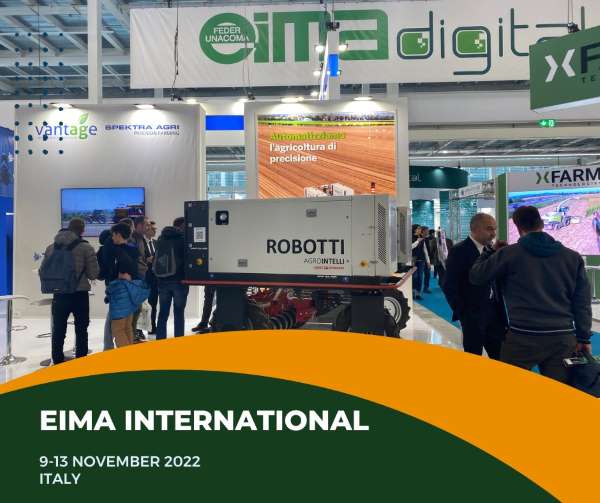In France, the USA and some Eastern European countries, they are already at work on farms. But in Italy, too, the demand for robots in agriculture is beginning to gain ground in order to increase and improve production, supplementing human labour while reducing environmental impact. The main stumbling block to dissemination still remains safety.
They can be used for many activities, from pruning vineyards to all necessary pest control and weed control practices. They can also be an effective tool for reducing the environmental impact of the production cycle. Indeed, robotics are also proving to be useful in achieving the objectives set by the European Commission more quickly, such as the 50% reduction of pesticides by 2030.
As emerged at Eima – the world exhibition of agricultural machinery currently taking place in Bologna – when we talk about robots in agriculture we are no longer talking about science fiction but about a reality that is also materialising in national fields. Already in action for some time in France, the United States and some Eastern European countries, robots are now also the future of technological innovation in agriculture in Italy.
A future foreshadowed by FAO itself: for the United Nations Food and Agriculture Organisation, farms will increasingly have to change and become smart, with a high technological content. In Italy too, universities and research centres are focusing on the creation of robots capable of effectively supplementing human work while ensuring conditions of maximum safety. The latter is a crucial factor for the spread of robotics in the agricultural sector.
“We are in our infancy, a real market demand has not yet arisen – explains Alessio Bolognesi, FederUnacoma’s digital technology expert – but we are seeing many projects for small and large robots springing up in our country too. And there is a lot of curiosity on the part of farmers. The hurdle we have to overcome is that of the safety of the machine when it interacts with man”. Another barrier is scepticism, as Riccardo Basantini, sales manager of 12 Steps Distribution, points out. “Yet today, robotics is a technology within everyone’s reach that can be used in a simple way,” says Basantini.
Moreover, robotics can be a valuable ally for mankind, to carry out all those operations that can be dangerous, such as clearing a valley floor, through remote control. The road towards the use of robots is in any case marked out, as is also shown by the Consortium created by the Politecnico di Milano and the University of Milan together with a number of foreign research centres precisely to measure and improve the performance of robots. “A Consortium with which – explains Matteo Matteucci, a lecturer at the Politecnico – we are trying to measure how good a robot is at distinguishing between crops and weeds”.









